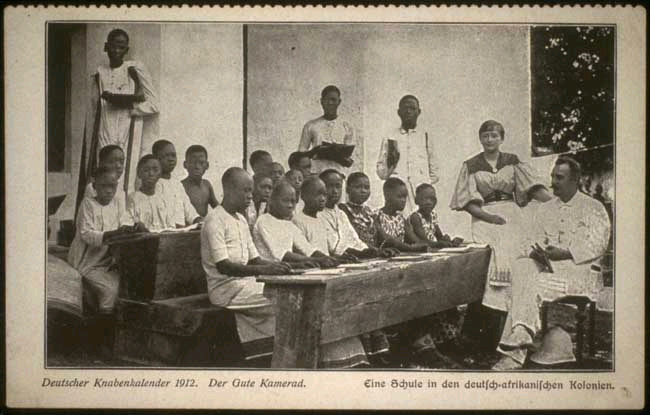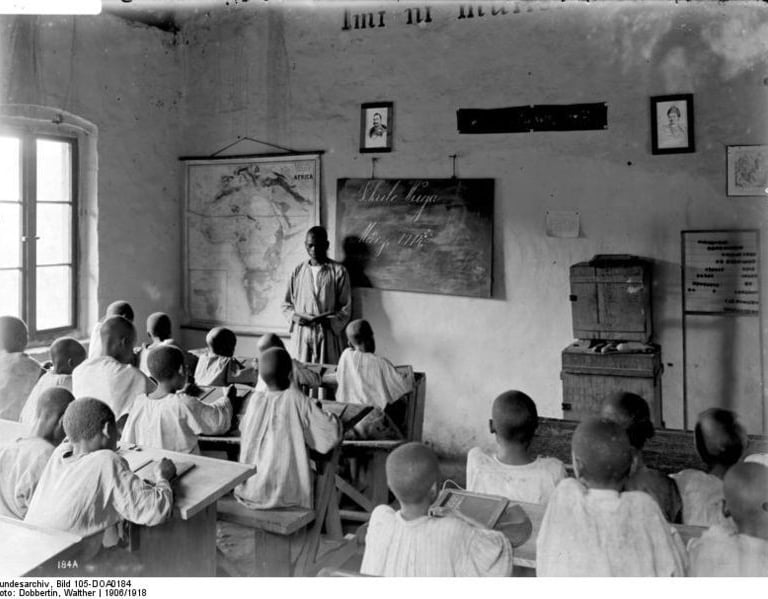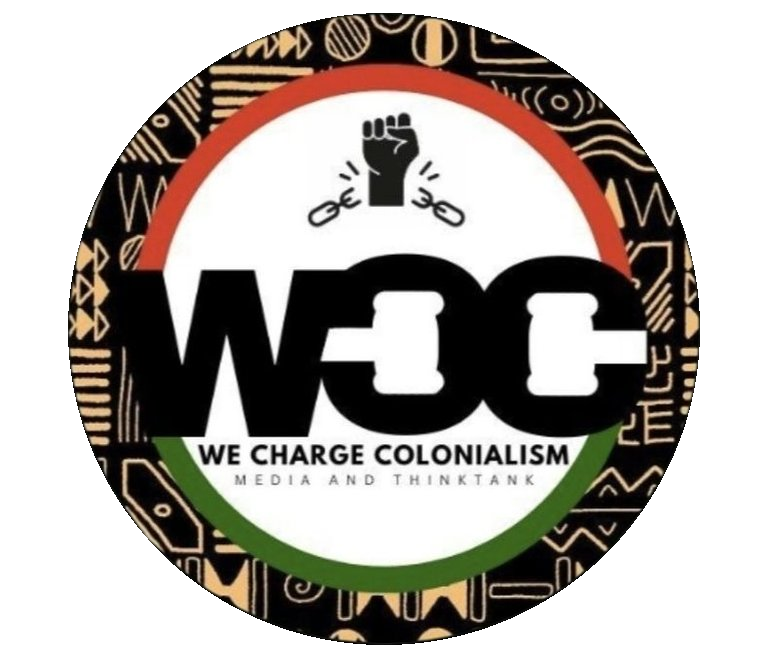Colonial Education: The Politico-Necessity of the Miseducation of Africans at Home and Abroad, Part I
This article is the first in a series of research articles covering the history of European colonial education and its impact on colonized Africans. This first article represents more of an introduction to the series.


This is the first in a series of articles examining colonial education and its function to make willing subjects of the colonized. Walter Rodney wrote that, “education is crucial in any type of society for the preservation of the lives of its members and the maintenance of the social structure. Under certain circumstances, education also promotes social change.”[i] In other words, education serves at least two purposes, i.e., to help maintain the social system or bring about its transformation. Whether it helps to maintain or dismantle the system is contingent upon the purpose of those who design and/or influence the curriculum. Those who design and influence the curriculum of the colonized are the colonizers, or those trained by the colonizers, and the results have been their perpetual oppression and exploitation. This research is meant to add to the discourse on colonial education in order to develop alternative institutions to those that serve the imperialists.
In 2019, I completed my graduate research and successfully defended my thesis on colonial education in Sierra Leone and its link to neocolonialism. Sierra Leone represents a microcosm of the predicament that Africans the world over find themselves in today. The power and control to use education to perpetuate the status quo, or to transform society is a tool that has eluded the Black community. If true liberation is to be achieved, the education of Black children must be stripped from the hands of the dominant class, the historic oppressors of African and Indigenous people. Colonial education is how the colonizer continues to shape and mold the minds and behaviors of the colonized. Steve Biko, an anti-apartheid activist in occupied Azania, had cogently stated, “the most potent weapon in the hands of the oppressor is the mind of the oppressed.” It was this understanding that influenced my research focus on education in colonial-Sierra Leone.
Colonial education serves a purpose, so from a matter of perspective there is nothing wrong with the educational system; it is working perfectly. If there was something wrong with the educational system, it would have been transformed or replaced. The problem is that the educational system is not designed to work for African and Indigenous people. The current educational system is designed to perpetuate the continuing exploitation and oppression of African and Indigenous people by the European or white community. Those who represent the ruling class of this community have no interests of relinquishing their power, control, and influence over the global politico-economy. This series will examine the function of colonial education and its effect on Africans and other colonized people. I am a historian by profession, and the framework that I use to examine colonial education is African Internationalism from a historian’s perspective. African Internationalism is a way to look at the historical development of Africans as subjects rather than objects in history. It is a theory developed by Omali Yeshitela, founder of the African People’s Socialist Party. Additionally, the works of Frantz Fanon, Carter G. Woodson, Bobby E. Wright, Albert Memmi, and others are examined to support the claims made in this essay. The ideas presented here are not new, our ancestors have been grappling with the ideal education for Black people for centuries. I will present these ideas throughout this essay.
There are a plethora of articles covering colonial education in the Americas and Africa, but not much on colonial education as a descriptive to explain education within the United States. An analysis of colonial education in Africa should shed light on the dynamic that exists in America, so that we can begin to define the miseducation of Black people for what it is, colonial education. It is no accident that the education received by the formerly enslaved in America was designed by the same government that sanctioned slavery. Education is the means to transmit information with the intent to shape the minds and behavior of the receiver. To give this power to another group is forfeiting your power to control your life and destiny. Enslaved Africans were only allowed to be educated in matters that benefited the slave owners. A formal education was not needed for the enslaved, only those things that the slave owner deemed necessary. Any education outside of the parameters set by the slave owners were considered illegal. In his autobiography, Douglass gives us a glimpse into the psychology of the slave owning class. After his owner became aware that his mistress was teaching Douglass how to read, he gives us these details:
“Mr. Auld found out what was going on, and at once forbade Mrs. Auld to instruct me further, telling her, among other things, that it was unlawful, as well as unsafe, to teach a slave to read. To use his own words, further, he said, “If you give a nigger an inch, he will take an ell. A nigger should know nothing, but to obey his master – to do as he is told to do. Learning would spoil the best nigger in the world…he would at once become unmanageable, and of no value to his master. As to himself, it could do him no good, but a great deal of harm. It would make him discontented and unhappy.”[ii]
This event set Douglass on a course that would free him from bondage and create one of the most significant figures in the history of the Black liberation movement. The ruling class, and those who benefit the most from colonial domination, fear the day that the colonized receives an education for liberation. The introduction of an education that allows for the oppressed to see themselves for who they are, and to see the oppressors for who they are, keeps the colonizers up at night. When Africans have their “Douglass moment,” it is at this time we will set ourselves on a similar path to liberation.
[i] Walter Rodney, How Europe Underdeveloped Africa (Washington, D.C.: Howard University Press, 1982), 238-239.
[ii] Frederick Douglass, Narrative of the Life and Times of Frederick Douglass (Bensenville, IL: Lushena Books, Inc., 2000), 36.
